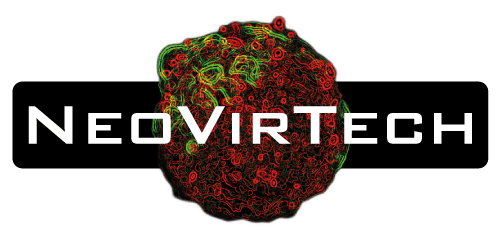Discovery made easy
About
NeoVirTech’s mission is to provide researcher state of the art virology assays using innovative, image based readout. Virology testing requires expertise, know-how and reglementary facilities involving laboratory confinement that can be difficult to access in classical labs. Also, classical virology methods are expensive and time consuming and slow down discovery processes.
At NeoVirTech we have developed an ever-expanding catalogue of autofluorescent viruses and viral vectors for the direct imaging of antiviral drug candidates effect or disinfection procedure in the field of human health, animal health and biodefense.
The company exploits and provides access to its proprietary ANCHOR™ technology to both academic and industrial customers and has the ability to convert any kind of DNA into an autofluorescent particle. ANCHOR™ allows fast, stable, precise and quantitative measurement of virus replication in living cells, providing our customer with the best virology testing method available. The asset of ANCHOR™ technology : no fixation, no extraction, no reagents, no staining, direct imaging of viral infection and replication.
Driven by innovation, we have expended our activities on a broad variety of field, including antiviral discovery, vaccine development, oncolytic therapies, gene therapy and decontamination testing using infectious viruses.
Among our CRO activities, we have also developed proprietary product displaying broad spectrum antiviral activities that we are positioning on emerging market.
Our goal is to speed up discovery process of any solution having an impact in the infectious disease field.
A reactive team
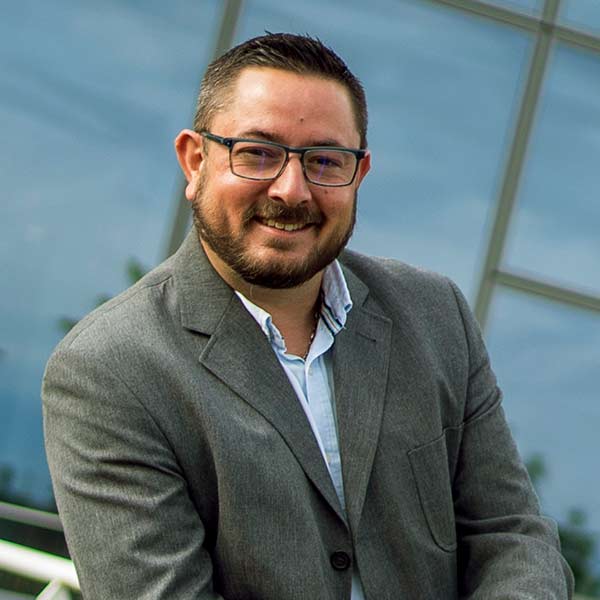
Franck Gallardo - PhD
Franck has nearly 20 years of experience in the field of cellular biology and microscopy and 10 years of experience in virology. He holds a PhD in biochemistry from the medicine faculty of the Université de Montréal, Qc, CANADA.. In 2015, he is awarded alumnus of the year from the Riboclub society, CANADA. Franck won the Innovative Company Award from the French Ministry of Higher Education and Research as well as The French Agency for Innovation (BPI France) in 2013 and in 2016. He is also a distinguished member of the World Society of Virology.
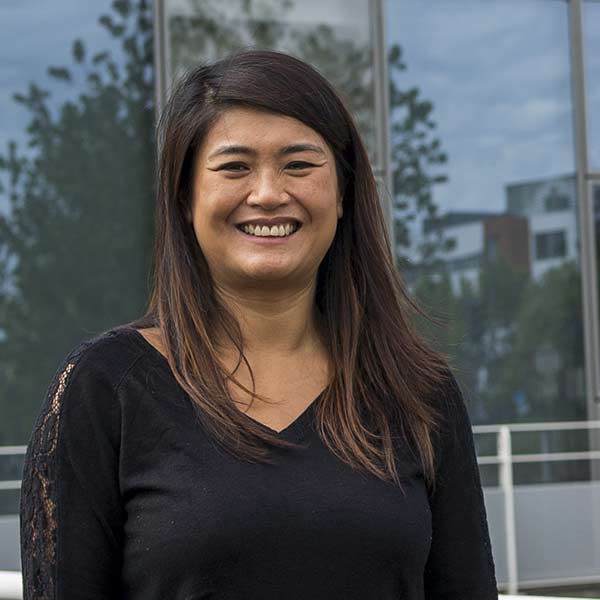
Sokunthea Top - PhD
Sokunthea obtained her PhD at the National Veterinary school of Toulouse, working on the development of poxvirus-based vaccine against bluetongue virus. Expert in the manipulation and recombination of viruses, she is in charge of managing our poxvirus projects, both in the antiviral, vaccinal and oncolytic fields. She led successfully multi-year program involving tagging of a strong collection of poxvirus for antiviral discovery (in vitro and in vivo) and vaccine development.
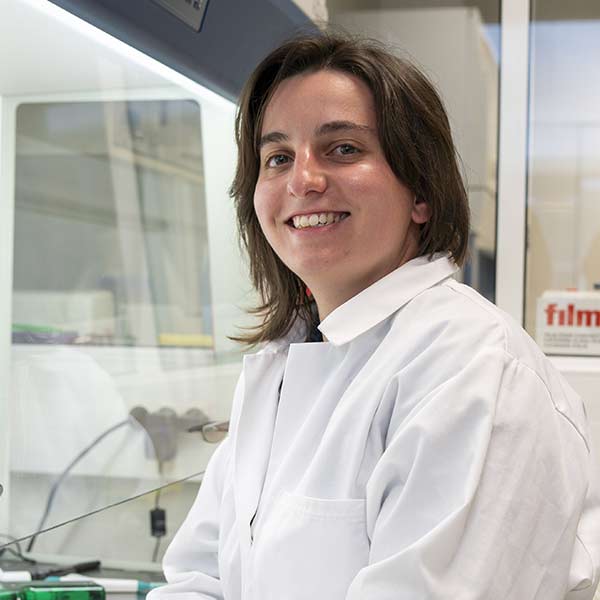
Charlotte Quentin-Froignant - PhD
Charlotte holds a master in vectorology and gene therapies. After managing anti-adenovirus discovery program at NeoVirTech, Charlotte joined us following a PhD fellowship from the ANRT. After completing its CIFRE PhD, Charlotte is in charge of the development of autofluorescent herpesviruses for the discovery of new antiviral compounds and treatment of widespread animal infection. She successfully tagged an infectious clone of Equine Herpes virus 1 with our ANCHOR technology, allowing rapid antiviral screening in case of outbreak.
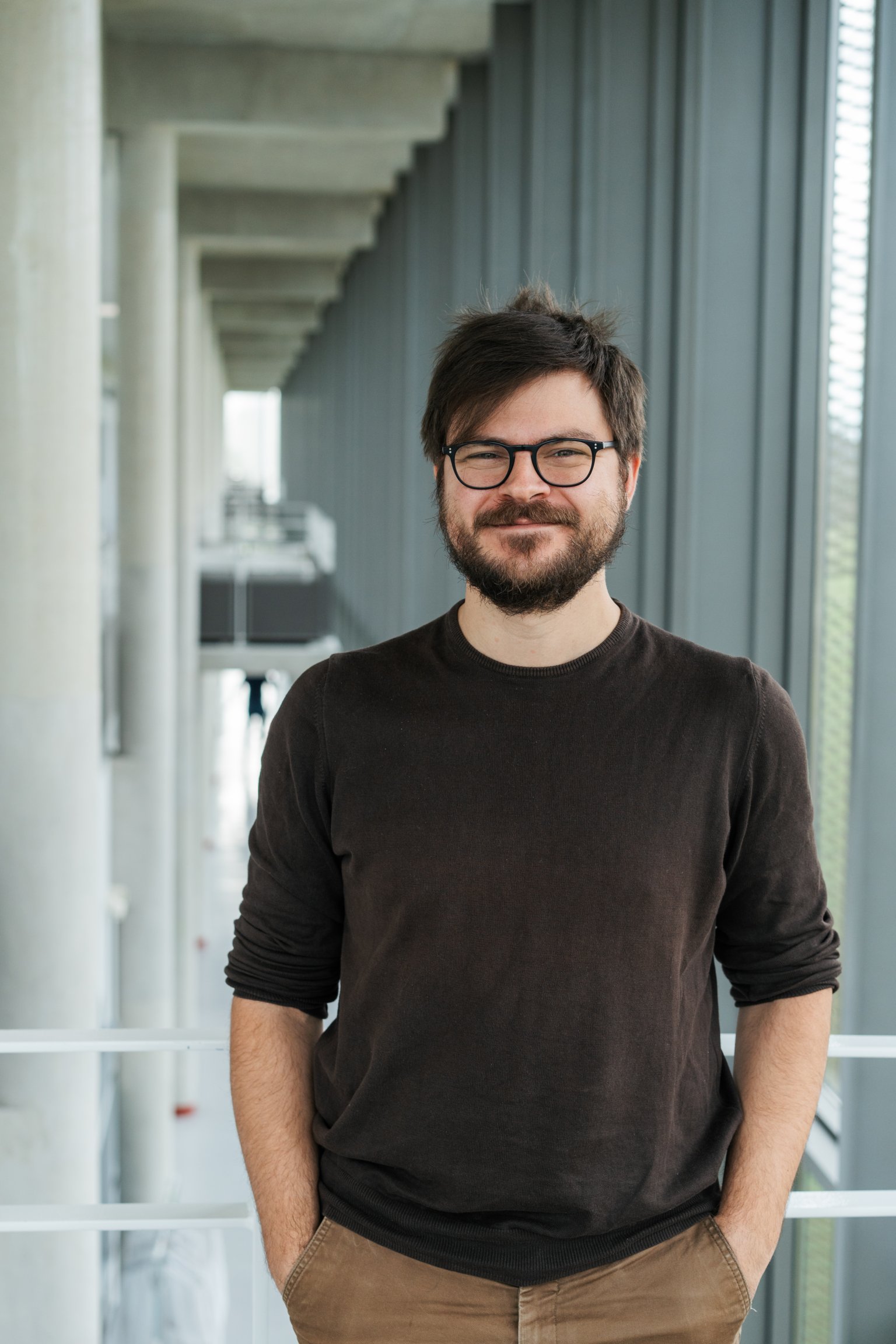
Guillaume Labrousse -Ph.D
After completing a Ph.D in Toulouse working on vascular normalization in breast cancer and metastasis evasion, Guillaume developed at the CRCT in Malik Lutzmann team Crispr/Cas9 techniques to decipher germline mutations in polymerase epsilon gene leading to early onset of hyper-mutated colorectal cancer and glioblastoma. Next, he joined Pierre Cordelier’s team to work on oncolytic viruses and developed Crispr/Cas9 genetic screen to find host genes involved in oncolytic virus infection cycle. Guillaume is expert in the genetic modification of oncolytic viruses and genetic screening, including NGS approaches. He will bring to the team his expertise in tumor models, construction and validation of OVs and 3D cellular models of infection. He is trained in animal experimentation. Guillaume is recruited through a France 2030 I-demo program.
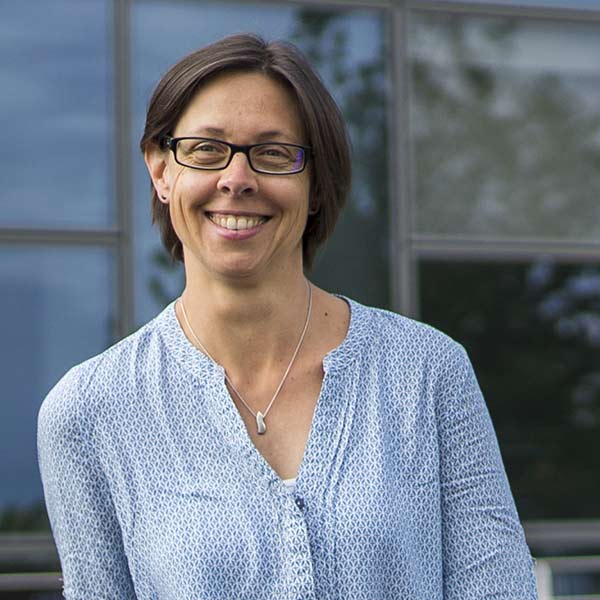
Sandrine Kappler-Gratias - PhD
Sandrine held various position before being recruited in the ANCHOR team in 2013. Sandrine has a long expertise in the design of ANCHOR tagged viruses for live cell imaging application. She was responsible for successful program such as tagging EBV and HPV genomes. Sandrine is head of screening unit, mainly in charge of customer HCS campaign. She successfully led multi-year antiviral screening project combining antiviral measurement, mechanism of action, generation of resistant strains and SAR studies. Sandrine is trained in quality, ISO17025-ISO15189.
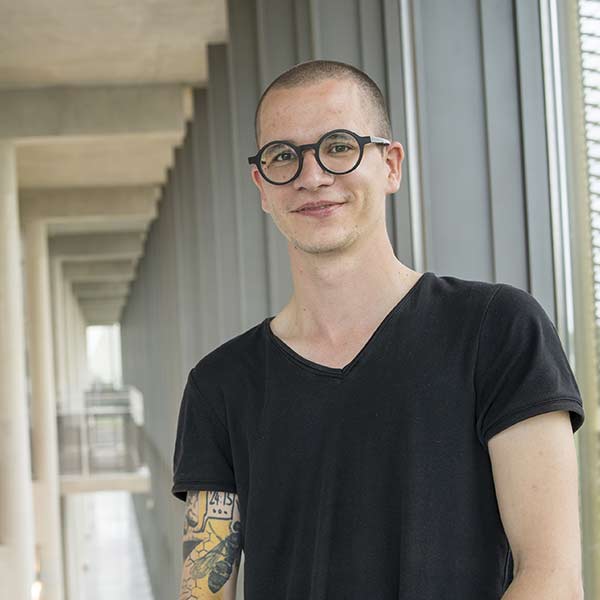
Elie Marcheteau - PhD
After completing a master in immuno-oncology targeting in vivo colorectal cancer at the INSERM in Paris, Elie did a CIFRE-Ph.D on siRNA technologies applied to breast cancer. Elie was in charge of studying the impact of siRNA on the tumor microenvironment, combining in vitro and in vivo studies. Elie is trained in animal experimentation and brings his expertise in in vivo manipulation and oncology at large. Its 10 years of experience in immuno-oncology is a strong asset for our oncolytic program. Elie quickly managed and assimilated NeoVirTech expertise and works now on Biodefense programs and disinfection procedures.
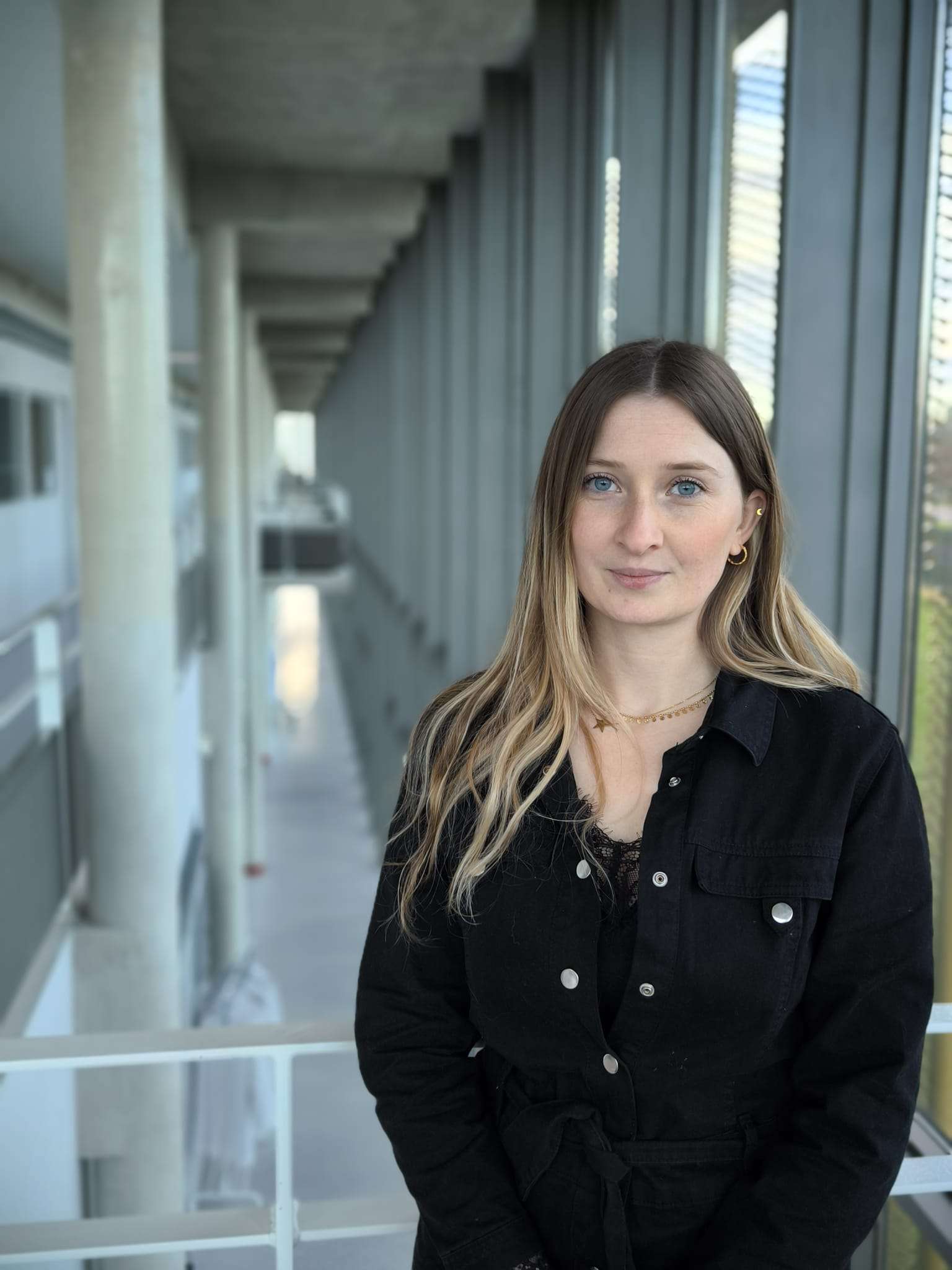
Charlène Lopez, M.sc
After completing a master in bioengineering at LAAS Toulouse working on bio impression techniques, Charlène then worked at the CREFRE and developed skills in animal testing. She then joined the CRCT as an engineer working on the development of oncolytic virus targeting pancreatic cancer. Charlène is trained in animal experimentation and micro surgery and brings her expertise in in vivo manipulation and oncology at large. Charlène will develop new oncolytic viruses targeting several type of cancer, from design to in vivo testing.
History
The genesis of NeoVirTech is based on the discovery of the ANCHOR™ technology that allows real-time visualization in living cells of any kind of cellular or foreign DNA. Inserted inside a viral genome, ANCHOR™ allows the following of infection and replication of a virus or any viral vector. This discovery, achieved through the joint work of 2 CNRS laboratories (LBME-LMGM) was supported by a maturation program funded by the French TTO Toulouse Tech Transfer (Toulouse, France).

